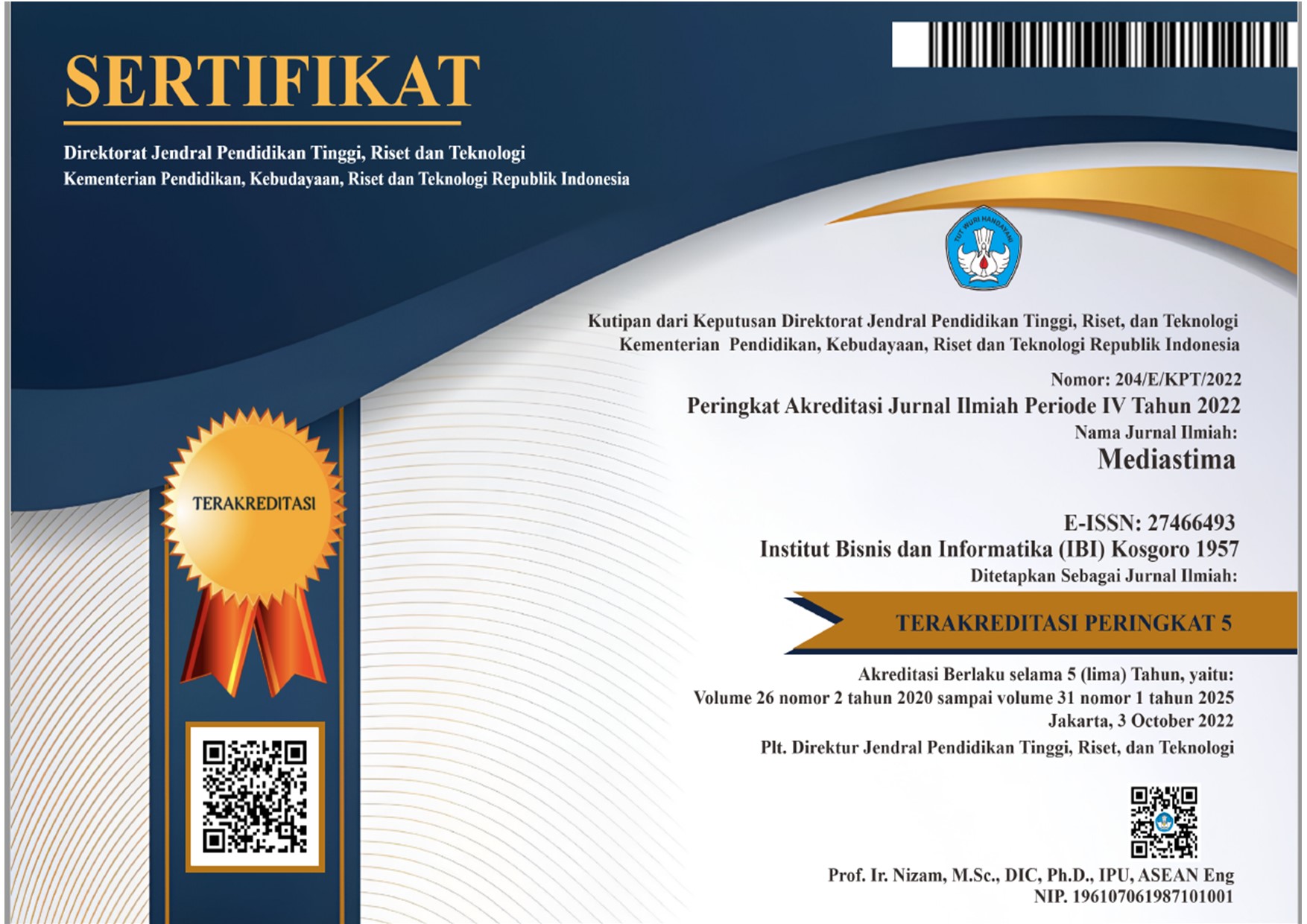Rasionalitas dan Altruisme Generasi Z
DOI:
https://doi.org/10.55122/mediastima.v30i1.1207Keywords:
Generasi Z, Rasionalitas, Altruisme, Personaliti, InformasiAbstract
Tujuan penelitian ini adalah untuk: mengidentifikasi pengaruh personaliti generasi Z terhadap rasionalitas, mengidentifikasi pengaruh informasi bagi generasi Z terhadap rasionalitas, dan mengidentifikasi pengaruh rasionalitas terhadap altruisme generasi Z. Penelitian ini menggunakan metode deskriptif kuantitatif. Jumlah sampel dalam penelitian ini adalah 100 sampel yang ditentukan secara berkebetulan. Variabel yang dianalisis adalah personaliti, informasi, rasionalitas dan altruisme. Seluruh konstruk dianalisis dengan model persamaan struktural. Hasil penelitian menunjukkan bahwa terdapat hubungan langsung antara faktor personaliti dan informasi terhadap rasionalitas generasi Z. Terbukti bahwa ada hubungan langsung antara altruism dengan faktor informasi dan rasionalitas. Variabel informasi dan personaliti melalui rasionalitas berpengaruh secara signifikan terhadap atruisme generasi Z. Implikasi penelitian ini adalah bahwa untuk menumbuhkembangkan sikap altruisme pada generasi Z yang harus diperhatikan adalah menyediakan sumber informasi yang terpercaya, meningkatkan pendidikan yang akan mendorong tumbuhnya kerasionalan. Hal tersebut didasarkan pada penelitian ini yang menunjukkan bahwa sikap rasional mendorong altruism.
Downloads
Published
How to Cite
Issue
Section
Accepted 2024-03-20
Published 2024-04-25






